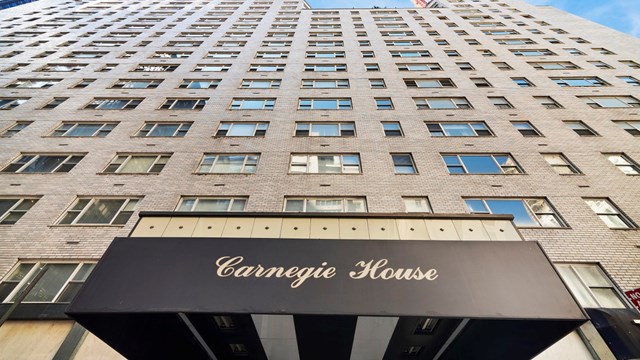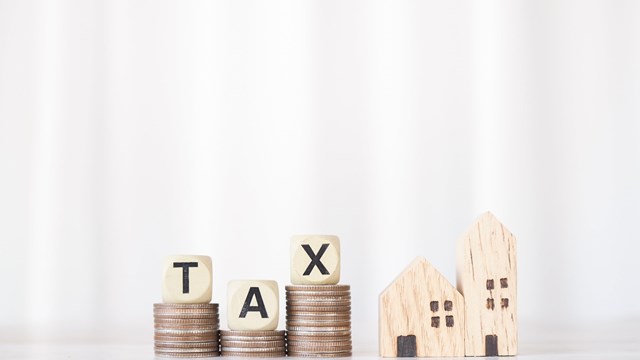It's hard enough balancing our own personal budgets without having to worry about an entire city's bottom line. But that's exactly what New York City Mayor Michael Bloomberg asked property owners to do last year when he sought a tax hike of nearly 25 percent to cover budget shortfalls.
After some wrangling, the final property tax increase came in slightly lower at 18.5 percent. Considering that New York City property taxes had been frozen for the previous decade, the bite on property owners' wallets was still a substantial, albeit, necessary one. According to mayoral spokesperson Jordan Barowitz, "Nobody likes tax hikes, least of all the mayor, but this is how we pay for law enforcement, for education, for the things the city needs to function."
According to the mayor's office, the new tax rate was designed to help the city generate enough revenue to cover a projected budget shortfall of nearly $1 billion in 2003 and $2 billion in 2004. Round one of the tax hike was estimated to have brought in some $837 million into the city's coffers, and continued revenue is expected to equal somewhere in the neighborhood of $1.7 billion annually for the city, according to The New York Times. That's good news for the municipal number crunchers, but "this was an unprecedented increase," says Jarvis Irving, managing partner of the Manhattan-based accounting firm Jarvis W. Irving & Company LLP.
The fact that taxes went up was not a shock to co-ops, condos and financial advisors. What did come as something of a surprise was that the increase came as a result of a higher tax rate. For years, New York had relied on increased assessment values to fill its coffers. Assessed values usually increased alongside market value, allowing for predictable raises that were less painful when it came time for co-op and condo owners to pay the tax bill. "Rates have always been harder to raise," Irving says. "Usually increases are always a fraction of a percentage point, not 18.5 percent." All told, when the tax rate increase and the normal higher assessments were factored together, The Times estimated that some homeowners were facing a tax increase of nearly 30 percent.
Because of a state law affecting the way different properties are assessed, however, co-op and condo owners have fared better than their suburban counterparts. No matter where the decimal point lands, though, the increased burden still produces some sticker shock.
While there has been talk of reducing the rate or providing tax cuts for certain segments of the city's population - the elderly, for example - it looks as though New Yorkers may be in for heftier tax bills in the near future if the budget deficit continues to increase.
Both co-ops and condos are facing shortfalls - there's no major difference in either the way taxes are assessed or how much unit owners are paying. In condos, individual residents pay their own taxes. In co-ops, the building is assessed as a whole with one bill sent to the corporation. That bill is then divided among the unit owners. "No one's making out any better or worse than anyone else," says Irving.
Faced with similar problems, co-ops and condos are both being creative in trying to make the newly enormous tax bill as painless as possible for residents. Conversation has been prevalent on the topic since the increase was announced in late 2002. "We attend our buildings' annual meetings, and it was the topic of discussion at every one," Irving says.
As with most problems, those buildings that were already in the habit of keeping close tabs on their budgets and planning ahead fared better. "Buildings that had been fiscally responsible on a consistent basis were hit less hard," Irving says.
When it came time to paying the bill, however, nearly every board has been forced to react similarly by increasing maintenance charges. "Out of the 75 buildings that we serve, only one did not increase its maintenance charges," Irving says. "Many were double-digit increases. It's a very unpopular move to say we're going to raise fees 10 to 15 percent, especially when increases are usually three or four percent."
At a roundtable discussion sponsored by the Federation of New York Cooperatives and Condominiums (FNYHC) and The Cooperator earlier this year, several board presidents complained that their buildings - some of which had not had maintenance increases in years - were now facing increases of anywhere from six to 15 percent.
According to Frank Labetti, a partner with accounting firm Shavelson Neuman in East Meadow, New York, "Most of my clients were expecting the increase, but when the rate increased as much as it did and assessed value increased, too, it had a big impact. Especially when you consider that insurance costs rose too."
Some buildings have been able to keep their increases lower than others. Throughout the city, boards that enjoyed a bottom line that was a bit on the full side were able to underwrite some of the increase with their budget reserves.
For the past few years, co-ops and condos have enjoyed real estate tax abatements, which was the result of a class action lawsuit that led to legislative changes designed to produce tax parity between co-op and condo buildings and single-family homes. In the case of co-ops, the city gave credit to the building against the collective tax bill, and everyone in the building benefited. This past year, boards applied the abatement directly to the tax bill. "It's a painless way to raise a lot of money," Irving says. "It changed the fiscal approach to running a building. None of the shareholders complained about it."
There is, however, only so much financial juggling a board can do and only so much budgetary fat to be cut. "Everybody is looking for some other form of income," Irving says. "Everyone's asking how we can trim expenses. But if it's a typical Park Avenue building with a big staff, it's not that simple." Nearly 70 percent to 80 percent of that type of budget goes to taxes as well as salaries and benefits for building staff. "Those numbers aren't that easy to decrease."
Of the buildings under his firm's care, Labetti says, "Mostly there were maintenance increases and abatement assessments."
With no more costs to cut, there's only one other solution: finding a way to increase revenue. A lot of buildings are revisiting flip taxes - a fee paid to the building whenever a co-op unit is sold. The fee is based on a percentage of the gross selling price, usually between one and three percent.
Other flip taxes come in the form of flat fees per apartment or a percentage based on the seller's profit. "It can add up to significant amounts of money for the building," Irving says. However, for buildings that do not already have the flip-tax policy in place, it can be an uphill battle convincing residents to buy into a fee they are likely to one day have to pay. "It can be an unpopular form of income," Irving says. Adding the policy to the bylaws can also be a struggle, since it usually requires the approval of two-thirds of the building's shareholders in order to make it onto the books.
In addition to flip taxes, boards are looking at their buildings themselves to help generate income. Renting roof space for cell phone antennas can be very lucrative. Buildings with attractive architecture and facades can earn extra dollars as the setting or backdrop for a movie, TV show or commercial.
On the more mundane side, boards also are finding additional pennies in storage charges or increased building service charges. Irving cited one building that was charging an extra $25 a month for the luxury of in-window air conditioners. The majority of new income, though, seems to be coming in the form of increased maintenance charges, assessments and flip taxes.
Higher real estate taxes not only affect residents and boards, they also eventually may impact the industry as a whole. "Higher taxes definitely have an impact on property resales," Irving says. "You see it most often in the more reasonably priced, more affordable properties - those in the $200,000 to $800,000 range," Irving says. "Those buyers are more sensitive about maintenance and common values."
According to Labetti, "Those who took the hit in 2003 seem to be doing better for 2004. For older people who have lived in these buildings for a while and seen increases, it hasn't seemed as significant to them. For people who have just moved in and seen two increases in two years, it's been a little more shocking."
Still, though, every cloud has a silver lining. When writing out those painful checks to the taxman, residents should remember that those payments are - you guessed it - deductible. "While they may be paying more, they're getting a bigger deduction," Irving says. Even though the pen may be shaking in each homeowner's hand as they write out that payment, they should remember to envision themselves making at least a small leap of joy when a more robust tax return lands in their mailbox in a few months time.
Says Labetti, "People who can afford to live in Manhattan will continue to live in Manhattan. Those who can't afford the higher maintenance fees in addition to their mortgage payments will find alternatives."







Leave a Comment